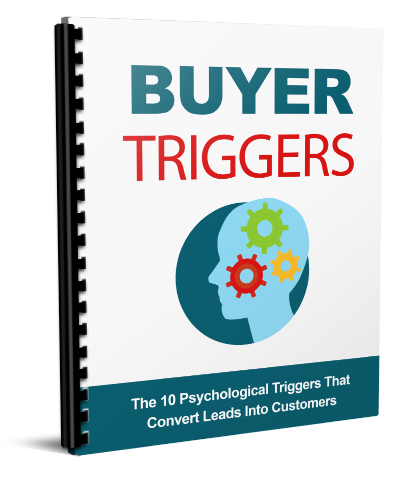Of the many mysterious acronyms that magically appear when you decide to start your own business are two that are very similar: SEO and SERPs. In this case, you can’t have one without the other! But what do they mean?
SEO and SERPs
SEO stands for Search Engine Optimization. In a nutshell, this is the process of making sure your website appears when someone Googles the product or service your business provides. If you want to learn the basics of SEO, you may start with this article.
We’ve offered (and shall continue to offer!) many tips and tricks when it comes to wrestling your way to the top of those pages. And that brings us to the second acronym: SERPS are Search Engine Results Pages. When a query is entered into any search engine, the many answers that are listed in response are considered SERPs.
So how do you become the master of the SERPs? Ostensibly, through SEO. But in order to really dig into the “hows”, it’s a good idea to start with the “whats”.
What Kind of Information Is on a SERP?
When you perform a search, you’ll typically get four types of responses: Paid Results, Organic Results, Featured Snippets, and Knowledge Graphs.
Paid Results
Paid Results are usually posted first. On Google, Paid Results have the notation “Ad” next to the web address, which lets users know that that particular site has paid for the place of honor. These particular links are placed via a Pay-Per-Click process within Google Ads. Business owners bid on keywords, and expect to pay Google each time that ad is clicked on.
Organic Results
Organic Results are sites that are listed because the search engine’s crawl bots have located those sites as possible matching results. There are many factors that go into how these sites are located. Google, for example, reportedly uses hundreds of ranking factors in their algorithm, none of which are publicly confirmed. This is where SEO comes in particularly handy.
Read also: Why SEO is the key to Internet Marketing
Featured Snippets
Featured Snippets typically appear when a search asks a question that has a specific answer. These results can include pictures, a short summary in response to the query, the page title, and a link to the page.
In the case of Google SERPs, Featured Snippets appear because Google’s automated systems have determined the data on a particular page provides the needed information. You can influence your own page’s chances of appearing as a Featured Snippet much through the same processes of SEO: through content, keywords, backlinks, and more.
Knowledge Graphs
Knowledge Graphs are commonly known as “the block on the right hand side of Google”. Much like Featured Snippets, they include a selection of images, a brief summary, and a link to the site providing the data. Again, this information is organically mined by the search engine.
You’ll also find a variety of types of results on SERPs, such as video links, shopping links, or even maps, depending on the type of search you perform.
How Does the Search Engine “Choose” What’s on a SERP?
No two SERPs are the same. While those of us who are not employed by the search engines themselves may seem somewhat stymied by this fact, there are a few reasons for this. First, each individual’s SERPs are based not only on their current search, but on their overall search history.
If, for example, you have recently been searching for a new car, entering a term like “Ford” will be more likely to bring up pages from the automotive manufacturer, rather than the former US President, or the Ford-Fulkerson Algorithm.
Types of Searches
Another factor that influences the results of an internet search is the type of search itself. You may not immediately think of different types of searches; after all, you’re looking for information, and you receive information. What’s to differentiate one from another? Search engines, on the other hand, “think” a bit differently than we do.
Informational Searches
Informational searches make up the bulk of standard internet searches. If you want to learn more about a topic, you’ll conduct this type of query. Sometimes these are formed as questions, such as “what is the Ford-Fulkerson Algorithm?” and sometimes they’re posed as keyword search terms, such as “Gerald Ford biography”.
Navigational searches are those conducted in hope of finding a very specific piece of information, specifically a website whose URL has been forgotten, but in which some basic details are recalled. If you were looking for a specific review of an automobile in that new car search, you might type in the year, make, model, and the name of the reviewing site, eg: “2019 Ford Transit Edmunds”.
Transactional searches
These are directly relevant to your interest as a business owner, because the purpose of this type of search is to make an immediate purchase. This may be “pizza delivery near me” or “buy a fifteen passenger van”.
Yes, the results are technically informational, but the results will usually include a map plotting out nearby options, along with links to businesses that can make this type of transaction happen right away.
So How Do I Influence My Position on a SERP?
Placing at the top of a SERP takes us back to the beginning of this article. The whole purpose of SEO is to improve your site’s ranking on SERPs.
The bad news is that no one really knows exactly what search engines are looking for, and how they “choose” which site ranks where for each individual SERP. Over time, we have learned that there are many factors that can help search engines “discover” your page. This includes short and long-tail keywords, which signal that your page has content relevant to the search at hand.
Another important SEO technique is backlinking, in which your site gains authority in the eyes of search bots through the number of other sites that link to yours.
You may also be interested into Domain Authority and Page Authority concepts.
While we have many suggestions for driving traffic and optimizing your position on SERPs, the main ingredient to a successful website is frequent, accurate, relevant content. Without content, you have nowhere to place your keywords, nothing for others to link to, and a limited interest for those looking to learn more about your product or services. From there, the sky’s the limit!
Understanding SERPs
As a business owner, scaling the SERPs is always a good goal to have in mind, though the process may be a bit more complicated than anticipated. However, by understanding what’s on the page – and why it’s there – you have a higher chance of working alongside the search bots to get your page the high rankings it deserves.









